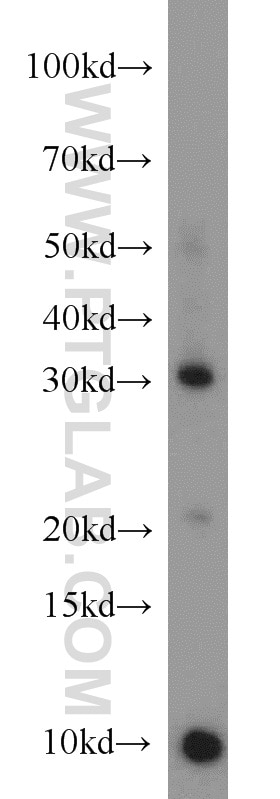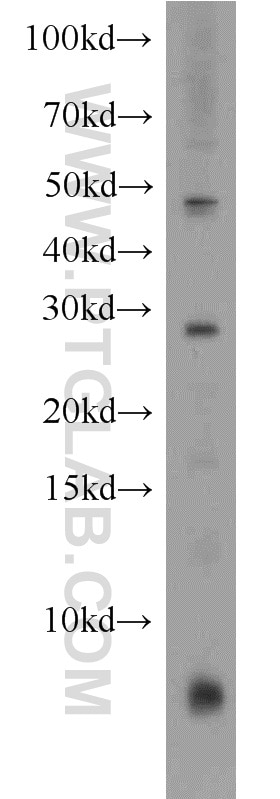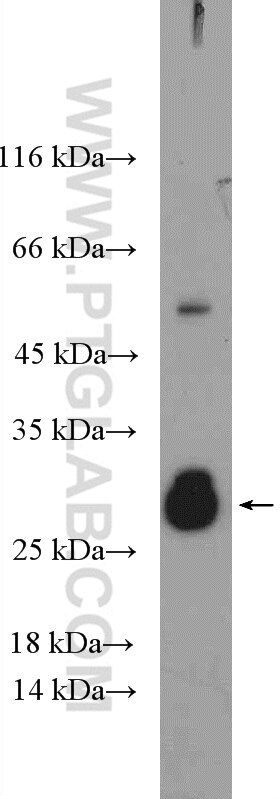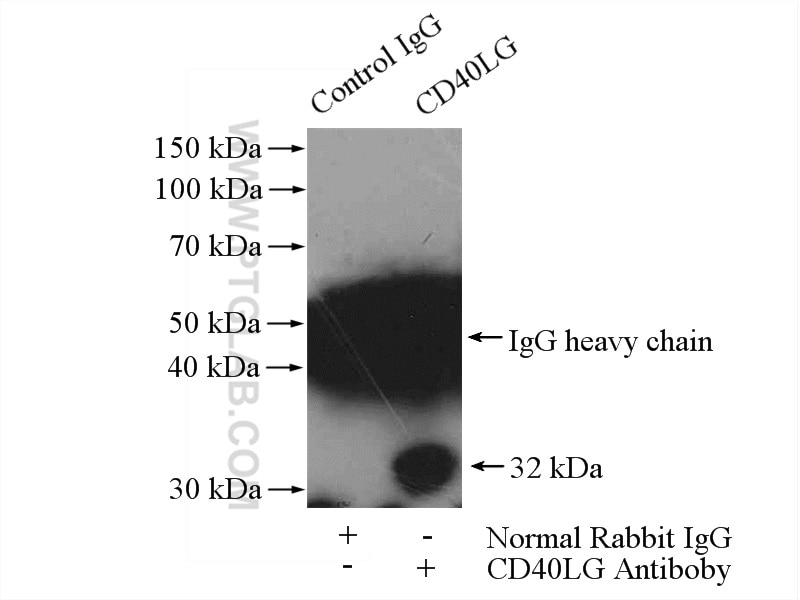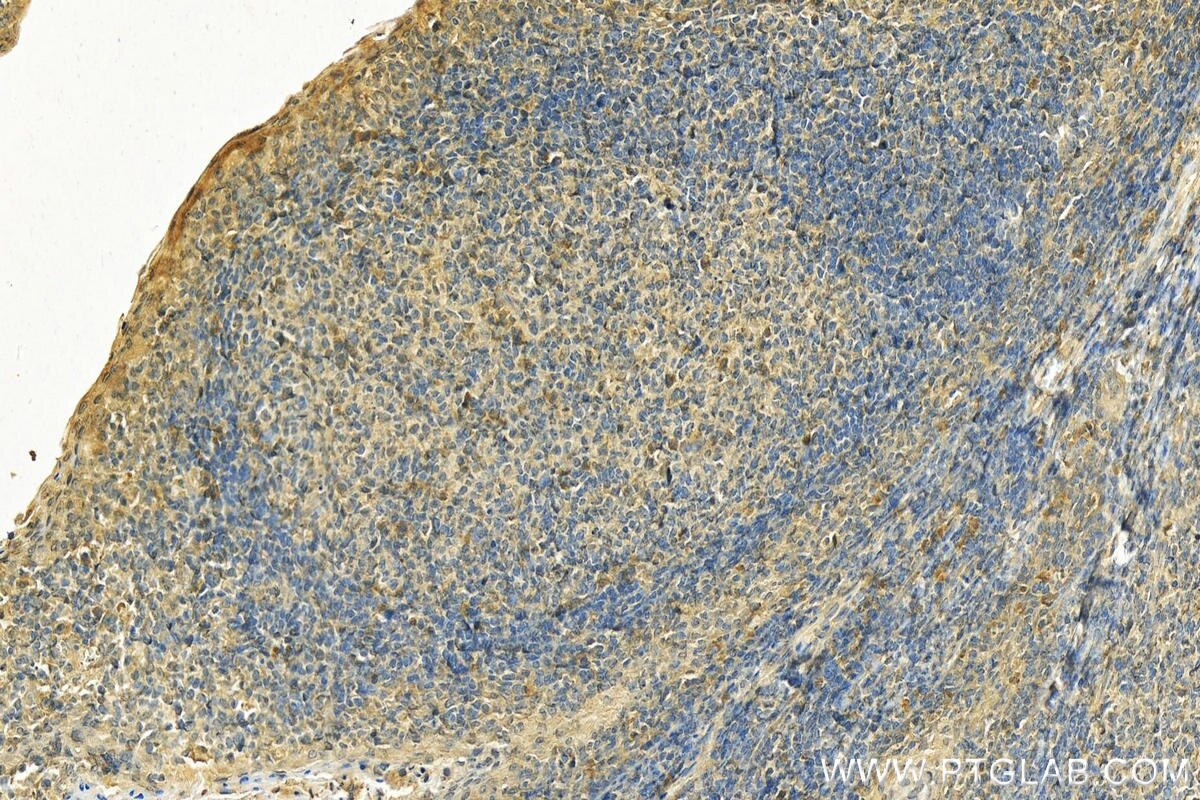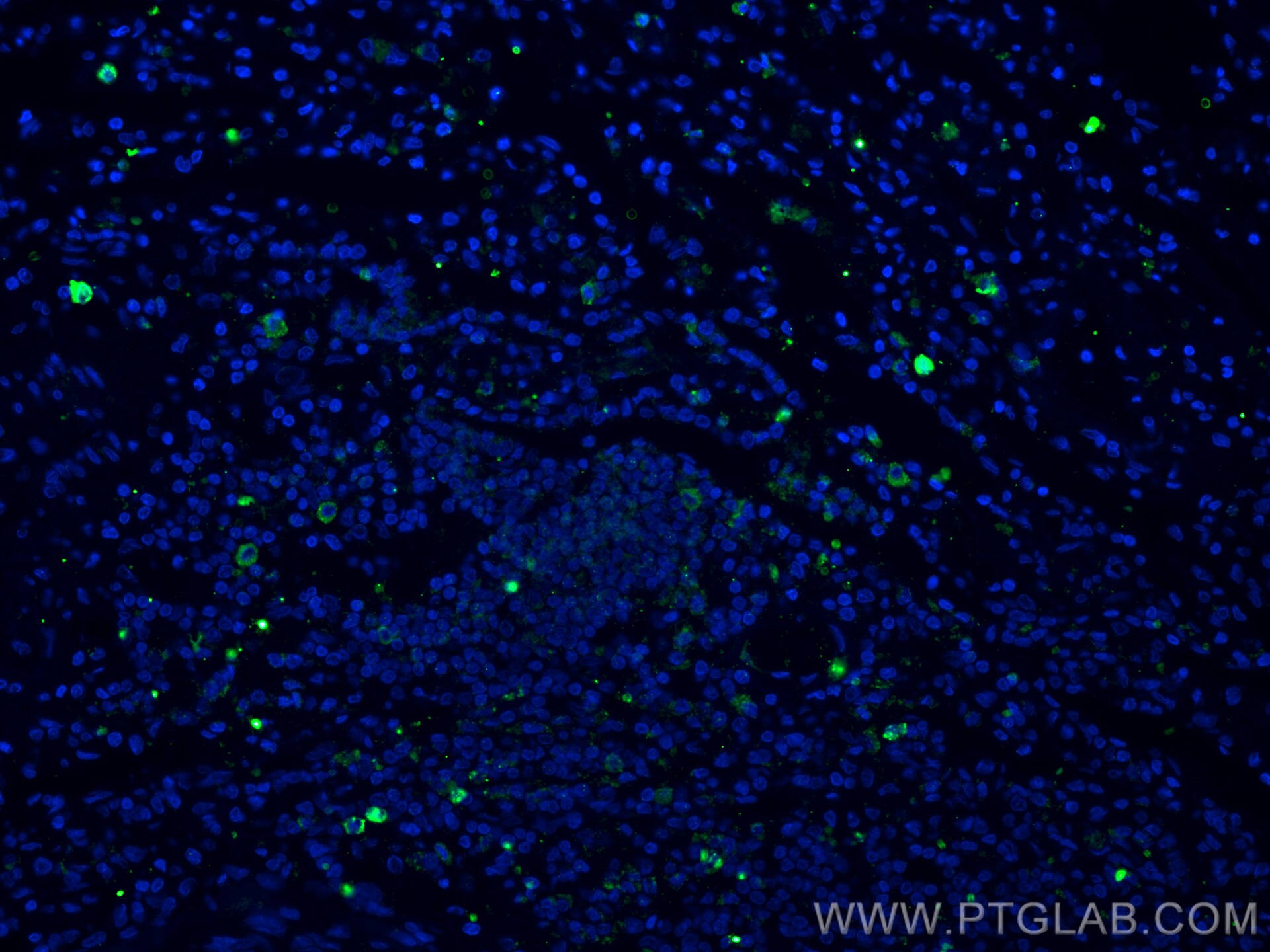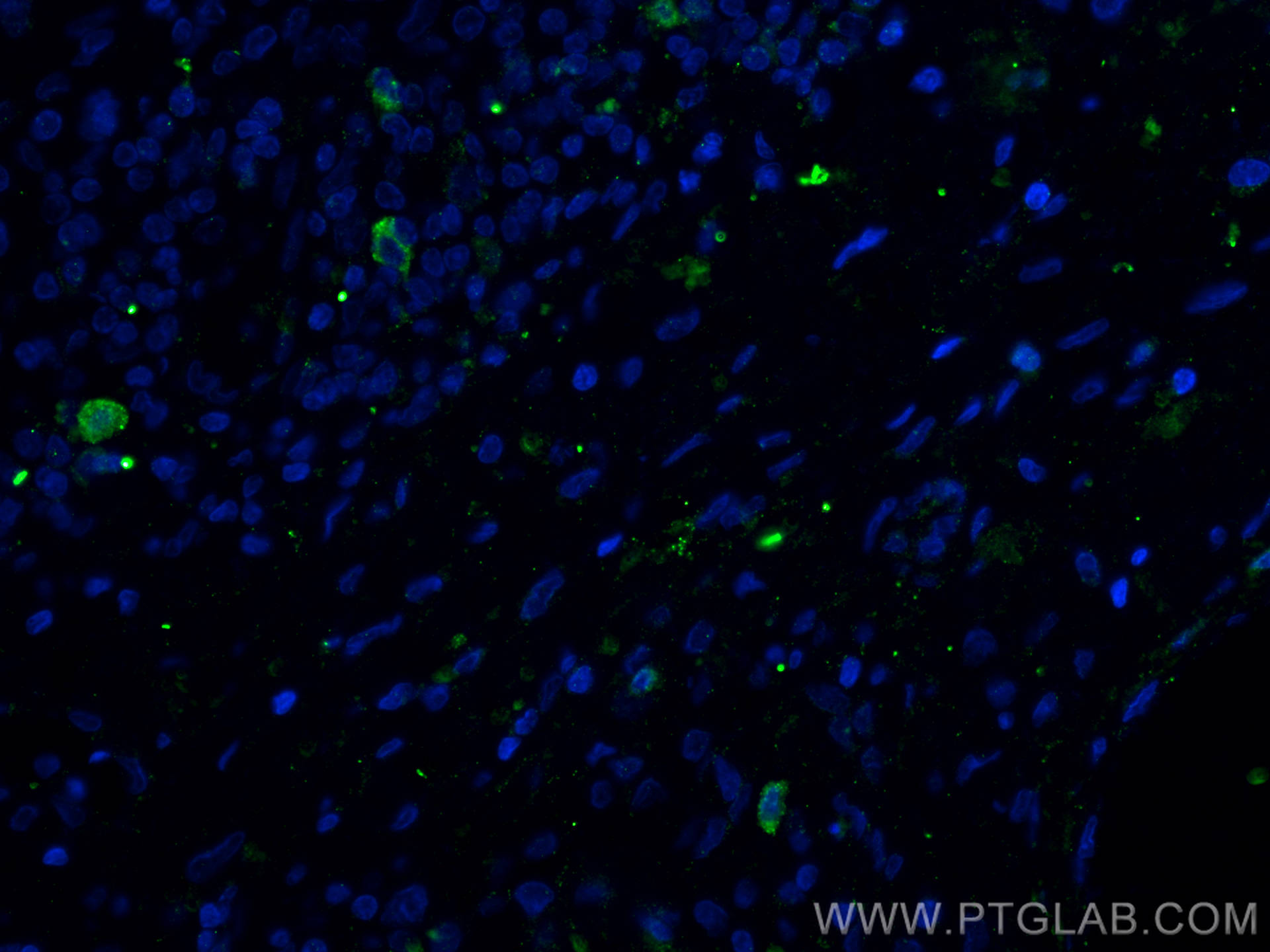Tested Applications
| Positive WB detected in | mouse small intestine tissue, HeLa cells, Jurkat cells |
| Positive IP detected in | Jurkat cells |
| Positive IHC detected in | human tonsillitis tissue Note: suggested antigen retrieval with TE buffer pH 9.0; (*) Alternatively, antigen retrieval may be performed with citrate buffer pH 6.0 |
| Positive IF-P detected in | human lung cancer tissue |
Recommended dilution
| Application | Dilution |
|---|---|
| Western Blot (WB) | WB : 1:500-1:2000 |
| Immunoprecipitation (IP) | IP : 0.5-4.0 ug for 1.0-3.0 mg of total protein lysate |
| Immunohistochemistry (IHC) | IHC : 1:50-1:500 |
| Immunofluorescence (IF)-P | IF-P : 1:50-1:500 |
| It is recommended that this reagent should be titrated in each testing system to obtain optimal results. | |
| Sample-dependent, Check data in validation data gallery. | |
Published Applications
| WB | See 9 publications below |
| IHC | See 5 publications below |
Product Information
16668-1-AP targets CD40L/CD154 in WB, IHC, IF-P, IP, ELISA applications and shows reactivity with human, mouse samples.
| Tested Reactivity | human, mouse |
| Cited Reactivity | human, mouse, rat |
| Host / Isotype | Rabbit / IgG |
| Class | Polyclonal |
| Type | Antibody |
| Immunogen |
CatNo: Ag10147 Product name: Recombinant human CD40L; CD154 protein Source: e coli.-derived, PGEX-4T Tag: GST Domain: 1-261 aa of BC071754 Sequence: MIETYNQTSPRSAATGLPISMKIFMYLLTVFLITQMIGSALFAVYLHRRLDKIEDERNLHEDFVFMKTIQRCNTGERSLSLLNCEEIKSQFEGFVKDIMLNKEETKKENSFEMQKGDQNPQIAAHVISEASSKTTSVLQWAEKGYYTMSNNLVTLENGKQLTVKRQGLYYIYAQVTFCSNREASSQAPFIASLCLKSPGRFERILLRAANTHSSAKPCGQQSIHLGGVFELQPGASVFVNVTDPSQVSHGTGFTSFGLLKL Predict reactive species |
| Full Name | CD40 ligand |
| Calculated Molecular Weight | 261 aa, 29 kDa |
| Observed Molecular Weight | 29-39 kDa |
| GenBank Accession Number | BC071754 |
| Gene Symbol | CD40 Ligand |
| Gene ID (NCBI) | 959 |
| RRID | AB_2076318 |
| Conjugate | Unconjugated |
| Form | Liquid |
| Purification Method | Antigen affinity purification |
| UNIPROT ID | P29965 |
| Storage Buffer | PBS with 0.02% sodium azide and 50% glycerol, pH 7.3. |
| Storage Conditions | Store at -20°C. Stable for one year after shipment. Aliquoting is unnecessary for -20oC storage. 20ul sizes contain 0.1% BSA. |
Background Information
The CD40 ligand (CD40L, TRAP, CD154), a member of the TNF superfamily of ligands, is expressed as either a 33 kDa transmembrane homologue or 18 kDa soluble form (sCD154). CD40L is primarily expressed on activated CD4+ T cells and on a small proportion of CD8+ T cells and platelets. It binds to CD40 on antigen-presenting cells (APC), which leads to many effects depending on the target cell type. Recent studies have suggested that CD40/CD40L interactions regulate oxidative stress and affect various signaling pathways in both the immunological and the cardiovascular systems. The CD40/CD40L system is also involved in tumorigenesis.
Protocols
| Product Specific Protocols | |
|---|---|
| IF protocol for CD40L/CD154 antibody 16668-1-AP | Download protocol |
| IHC protocol for CD40L/CD154 antibody 16668-1-AP | Download protocol |
| IP protocol for CD40L/CD154 antibody 16668-1-AP | Download protocol |
| WB protocol for CD40L/CD154 antibody 16668-1-AP | Download protocol |
| Standard Protocols | |
|---|---|
| Click here to view our Standard Protocols |
Publications
| Species | Application | Title |
|---|---|---|
Sci Adv Promoting the activation of T cells with glycopolymer-modified dendritic cells by enhancing cell interactions. | ||
J Mol Cell Cardiol TNF-α promotes early atherosclerosis by increasing transcytosis of LDL across endothelial cells: crosstalk between NF-κB and PPAR-γ | ||
Br J Pharmacol CRP promotes atherosclerosis by increasing LDL transcytosis across endothelial cells. | ||
Pharmacol Res PKCβII-mediated cross-talk of TRPV1/CB2 modulates the glucocorticoid-induced osteoclast overactivity. | ||
Sci China Life Sci Compression loading of osteoclasts attenuated microRNA-146a-5p expression, which promotes angiogenesis by targeting adiponectin. | ||
Reviews
The reviews below have been submitted by verified Proteintech customers who received an incentive for providing their feedback.
FH Sara (Verified Customer) (10-10-2024) | It worked well in immunofluorence, the staining colocalised with the CD3+ cells (T cells) but not with B cells.
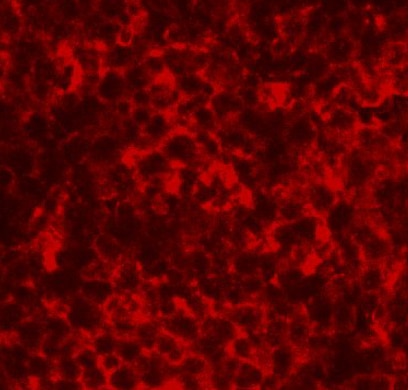 |

